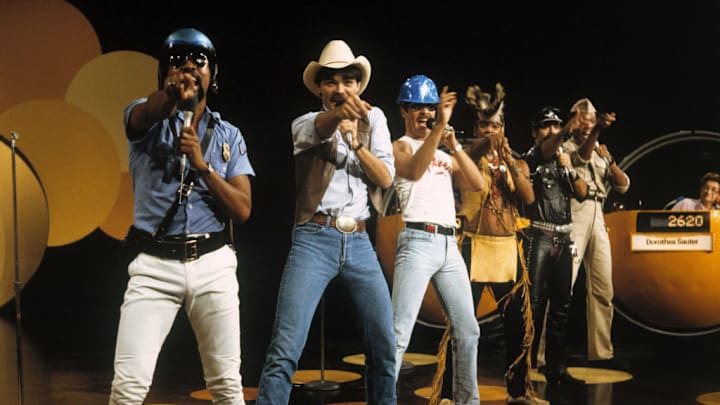The year was 1977, and French music producer Jacques Morali was writing songs for the third album by the Village People, a stereotype-satirizing disco ensemble he formed in New York City.
While walking down the street in the Chelsea neighborhood, Morali encountered something he’d never seen in Europe: the Young Men’s Christian Association. He visited the YMCA’s huge building on Manhattan’s 23rd Street, which offered inexpensive rooms to young men visiting the city. The idea was to give these impressionable lads a wholesome environment in the midst of the immoral metropolis. In reality, it was known as a place for hookups. And Morali thought he could turn the concept into a theme song for gay liberation.
“Jacques wrote ‘Y.M.C.A.’ in about 20 minutes—the melody, the chorus, the outline. Then he gave it to [lead singer] Victor Willis and said, ‘Fill in the rest,’” David Hodo, the band member known as the Construction Worker, recalled. “I was a bit skeptical about some of our hits, but the minute I heard ‘Y.M.C.A.,’ I knew we had something special. Because it sounded like a commercial. And everyone likes commercials.”
Morali’s upbeat song spent 26 weeks on the Billboard Hot 100 chart, reaching No. 2 in 1979. It was a gigantic hit with everyone—except the eponymous organization.
It wasn’t because the Young Men’s Christian Association took issue with the song’s tongue-in-cheek lyrics or the Village People’s gay references. YMCA executives were more concerned with copyright infringement.
Shortly after the single’s release, the YMCA announced its trademarked name had been used without permission and began pursuing an out-of-court settlement. Profit was not the point, though one attorney said, “in any negotiation, money is a factor.”
What happened next is unclear, but the YMCA seemed to recognize the popularity (and free publicity) associated with the song, and both parties eventually made peace [PDF]. “We at the YMCA celebrate the song,” media relations manager Leah Pouw told Spin in 2008. “It’s a positive statement about the YMCA and what we offer to people all around the world.”
A version of this story ran in 2015; it has been updated for 2023.
